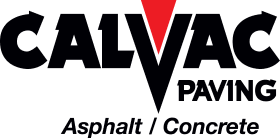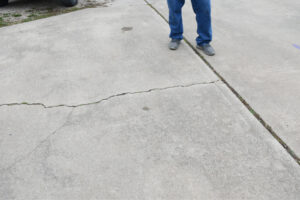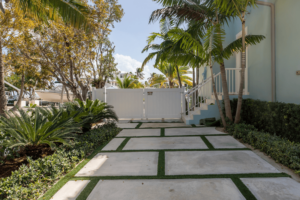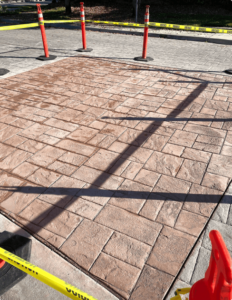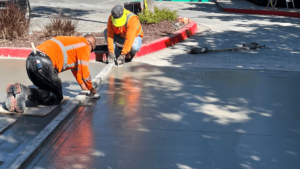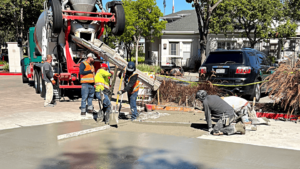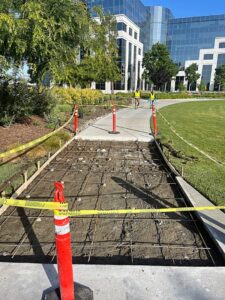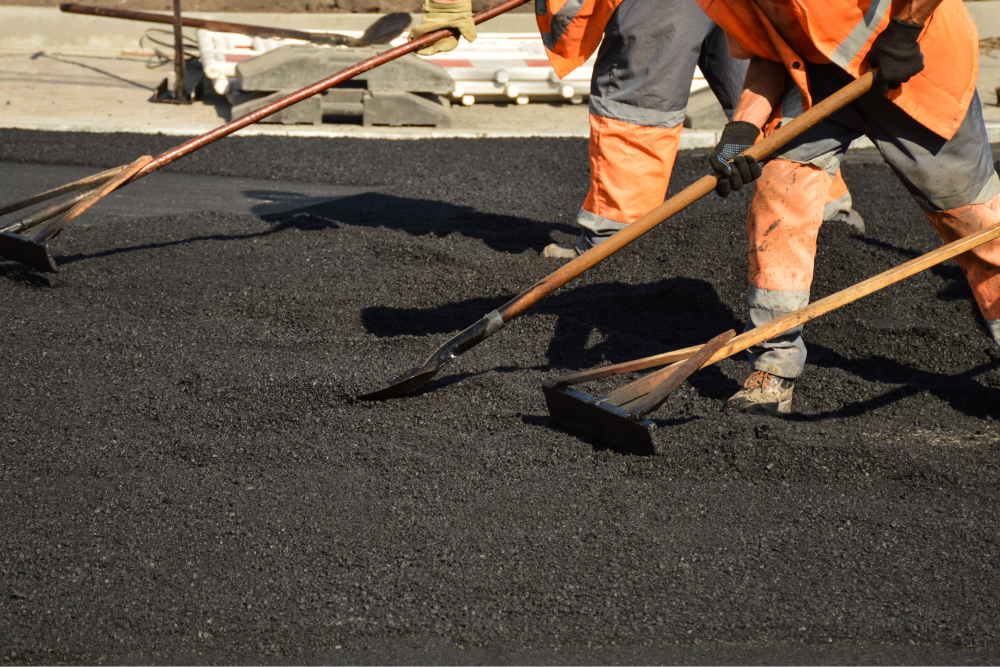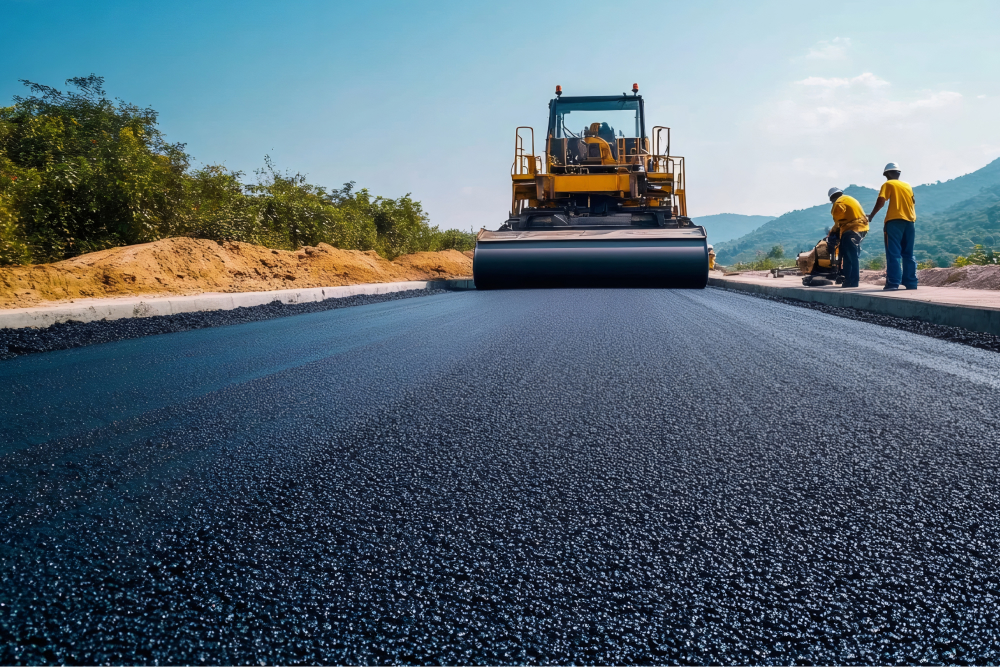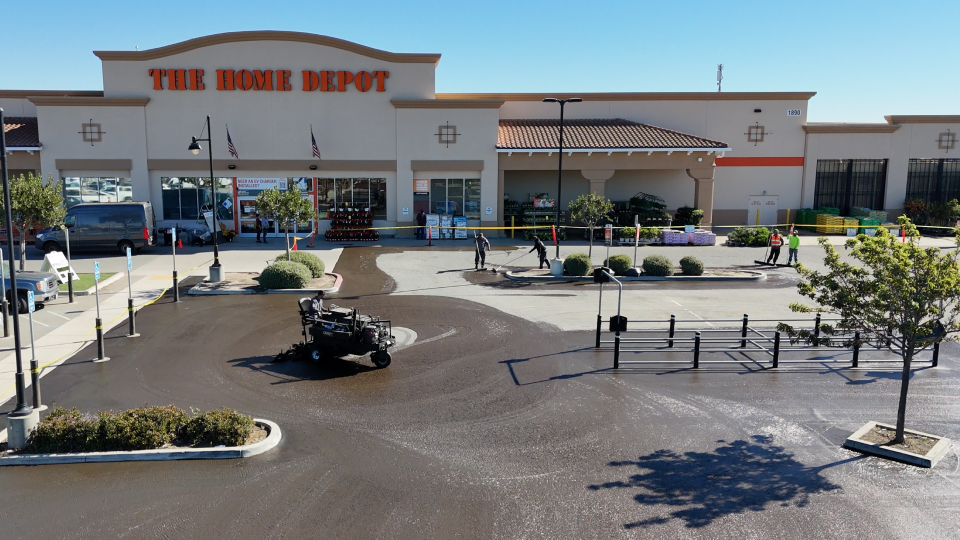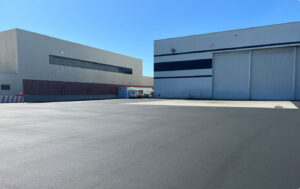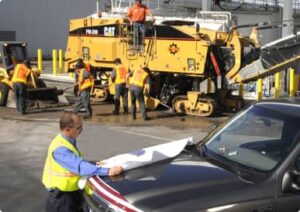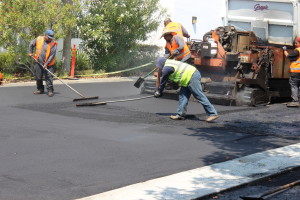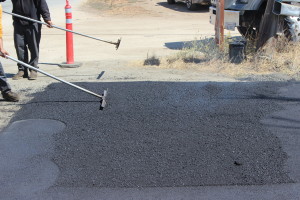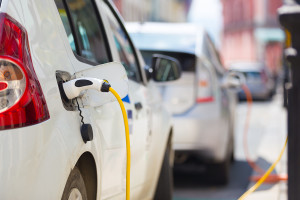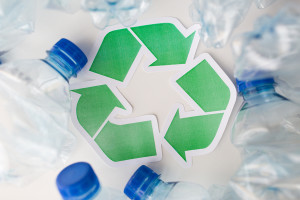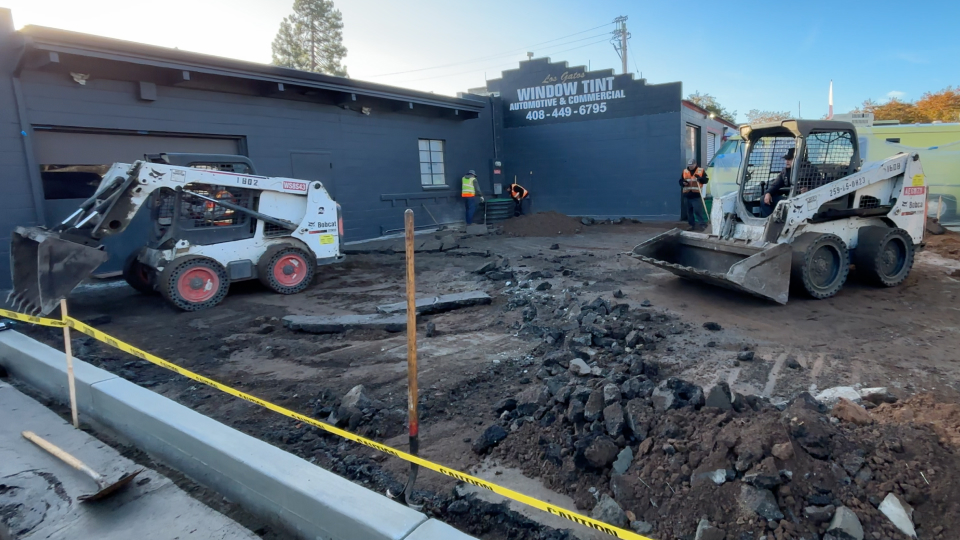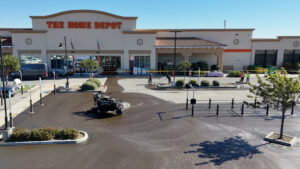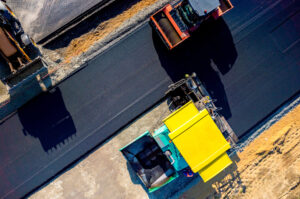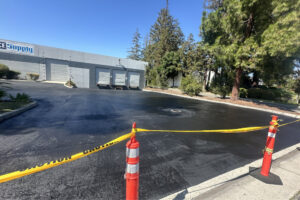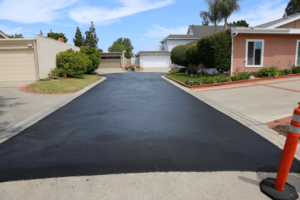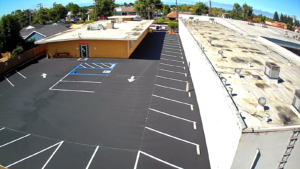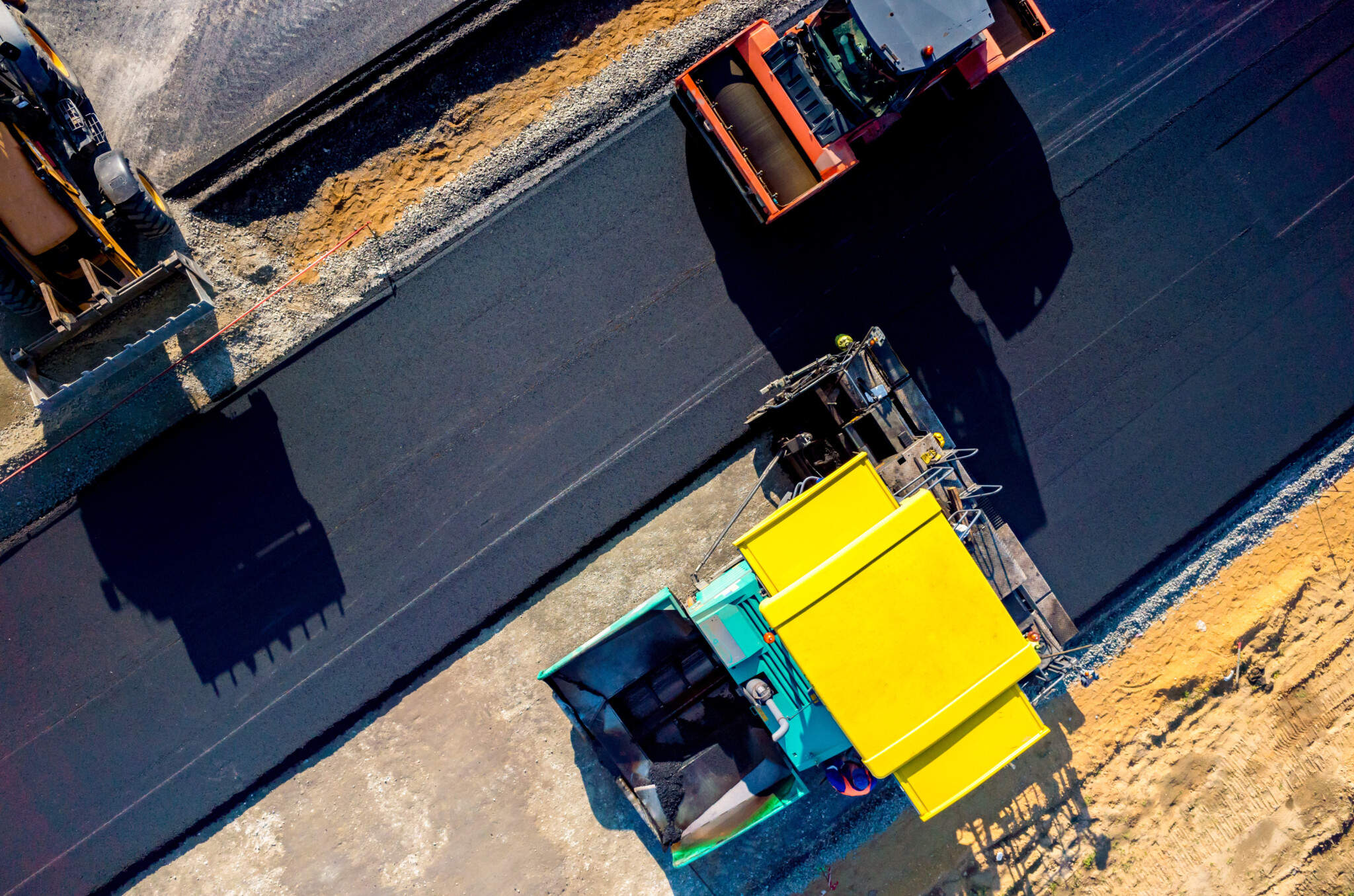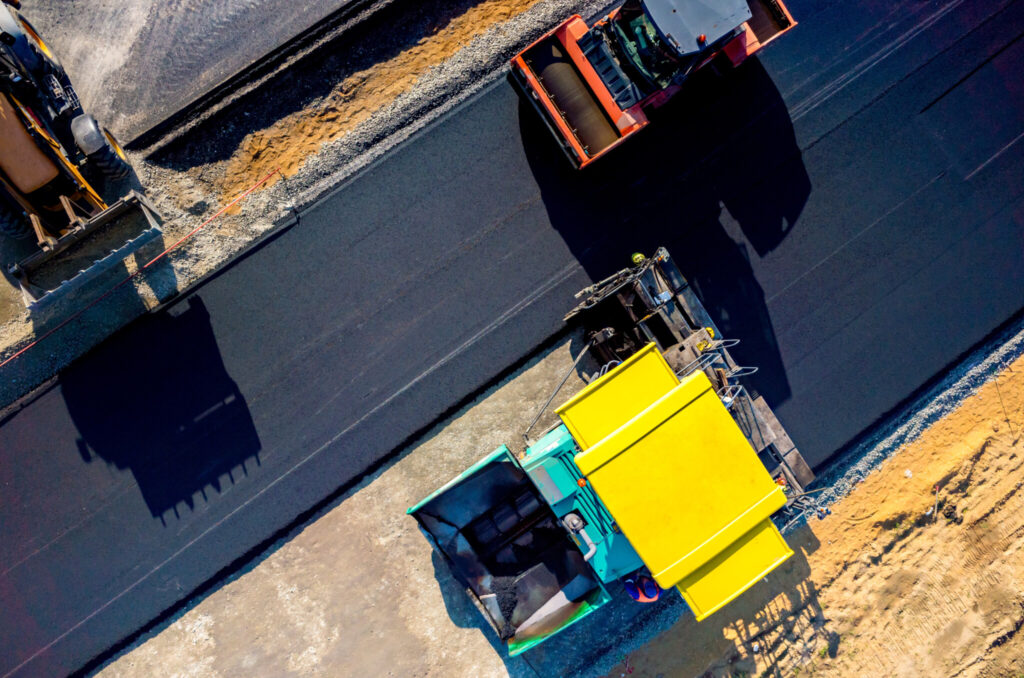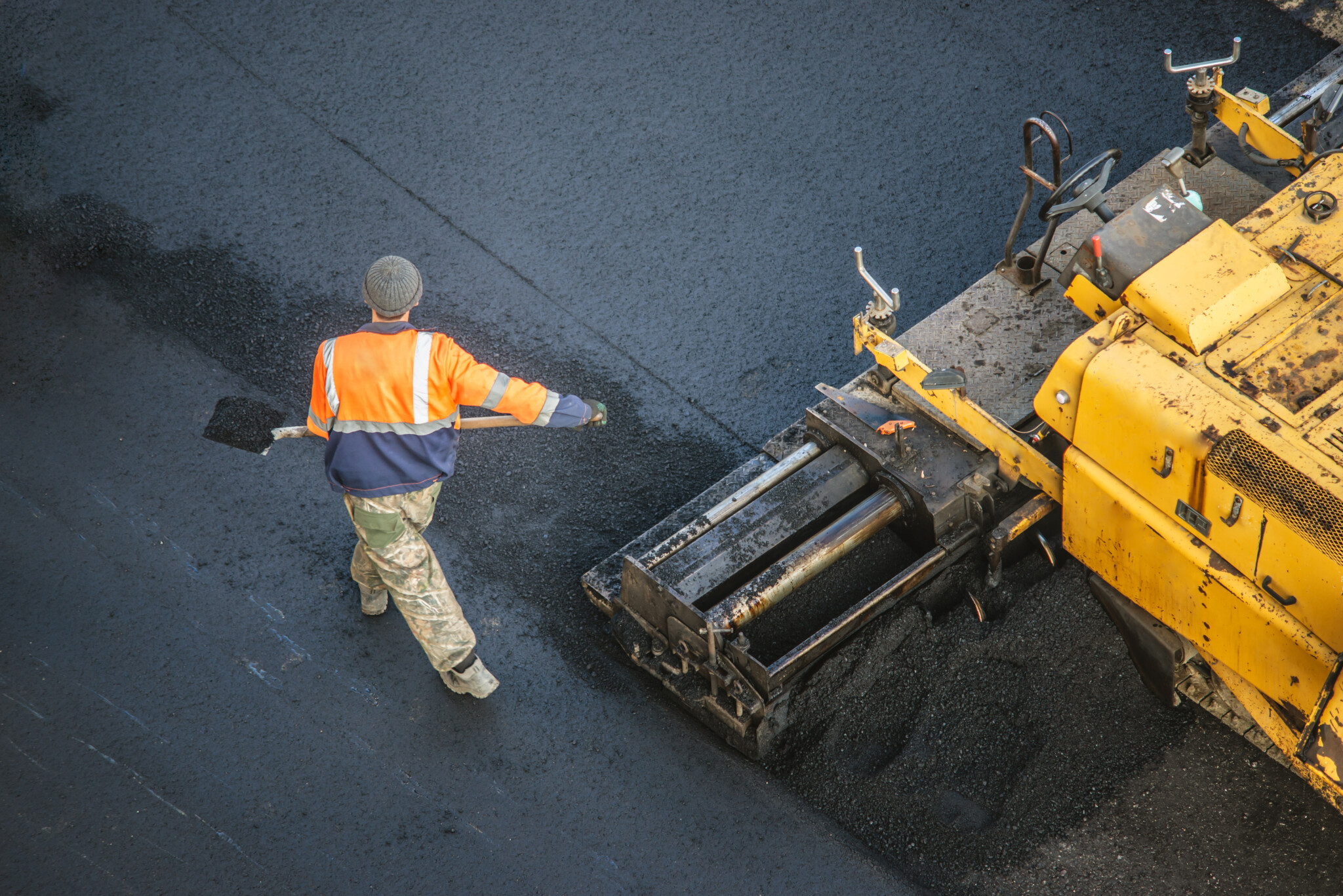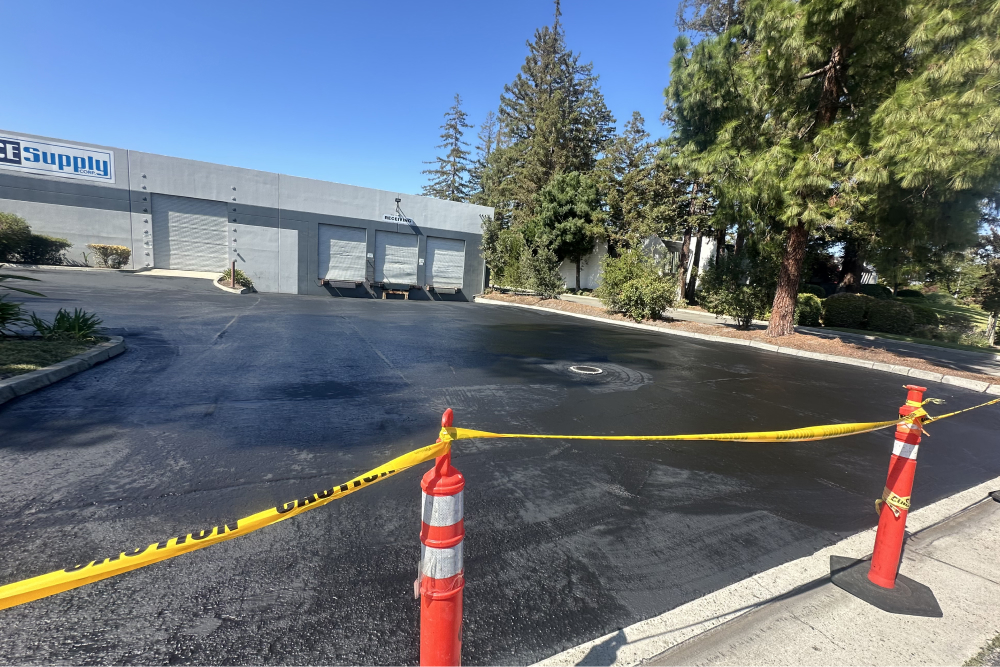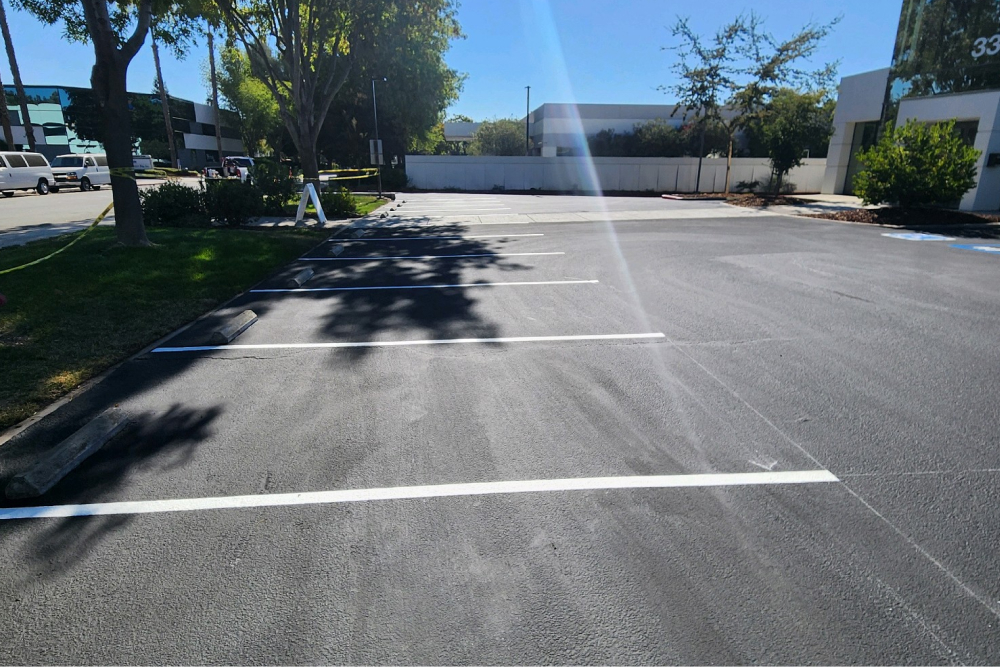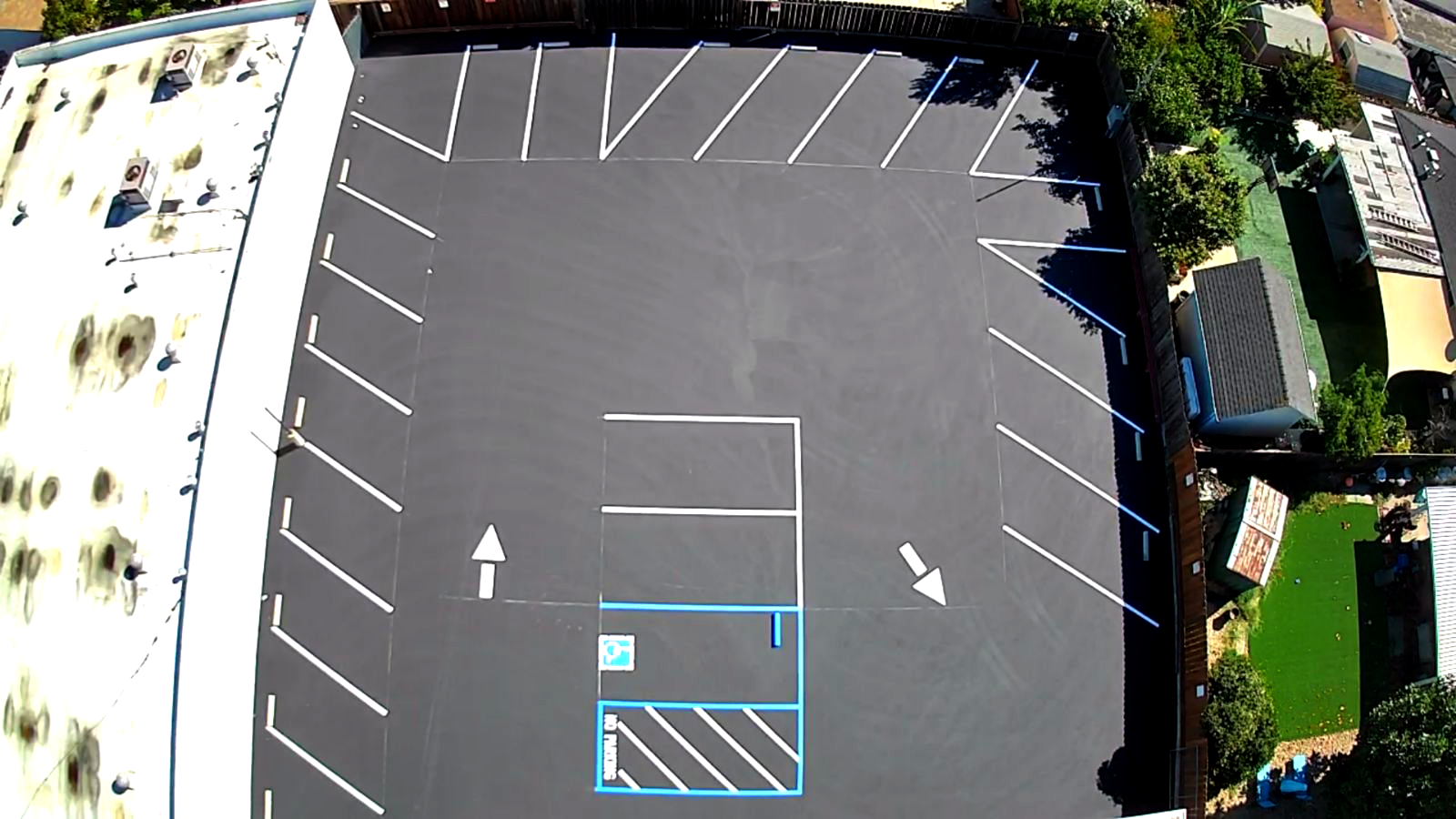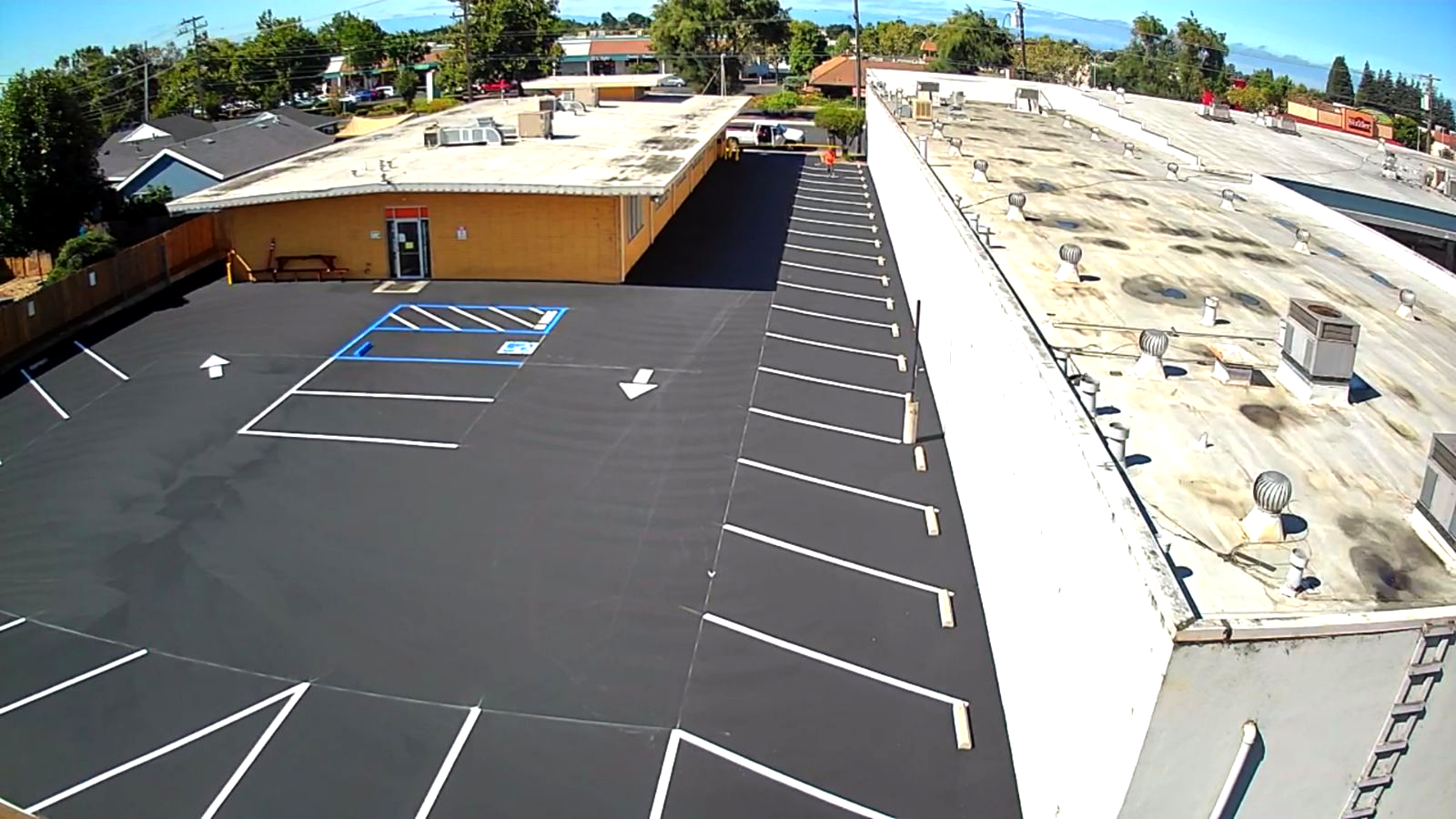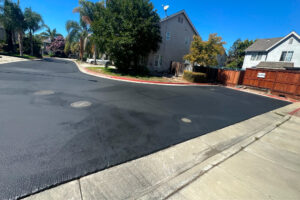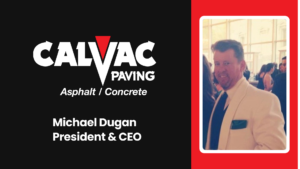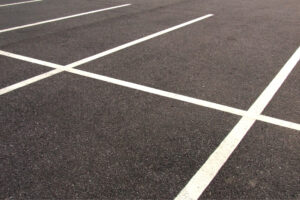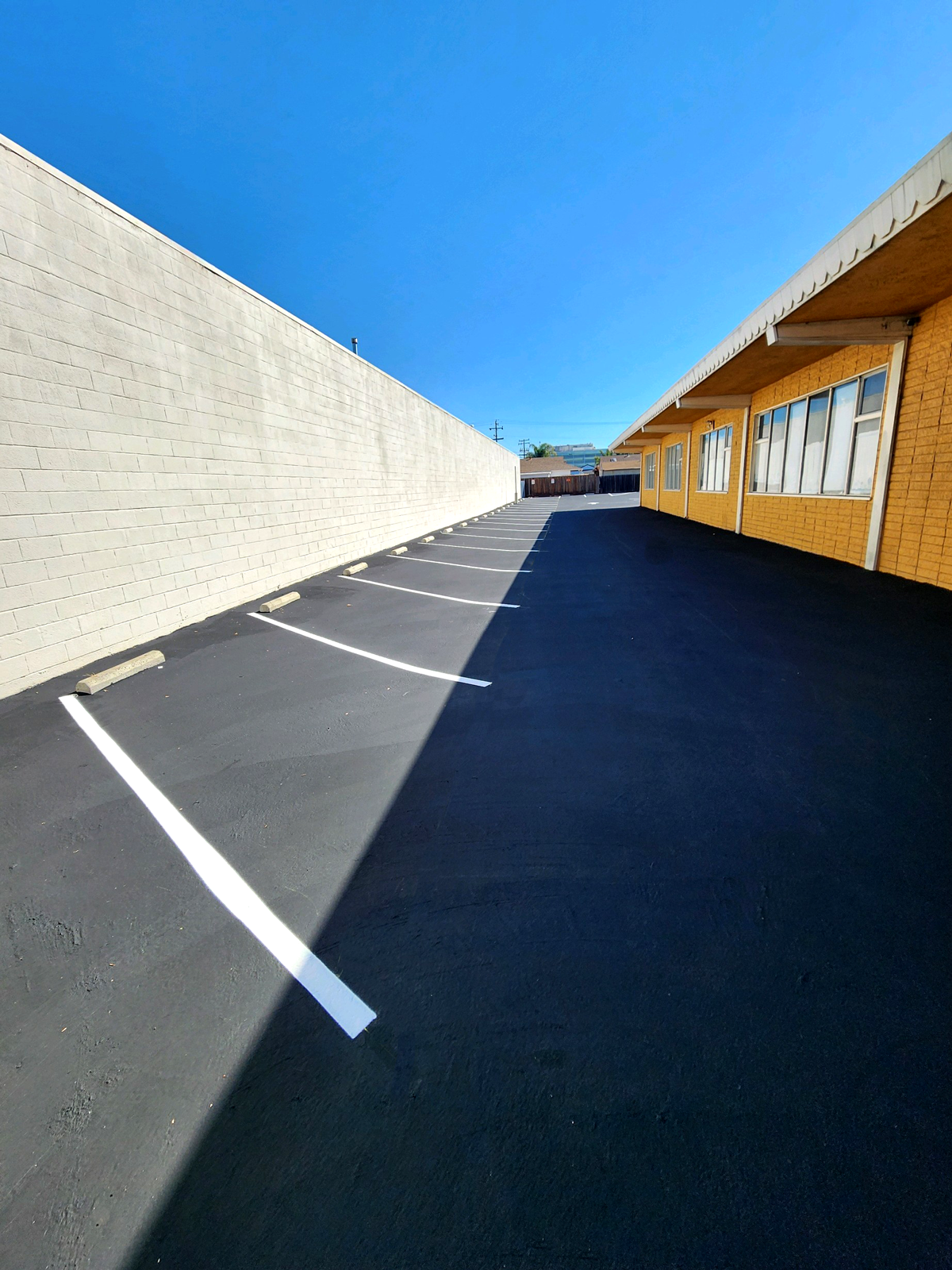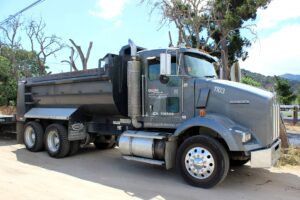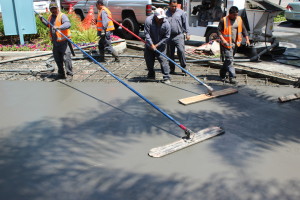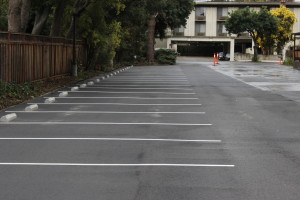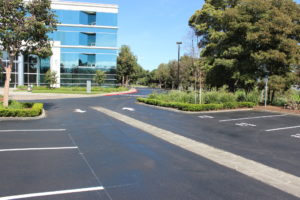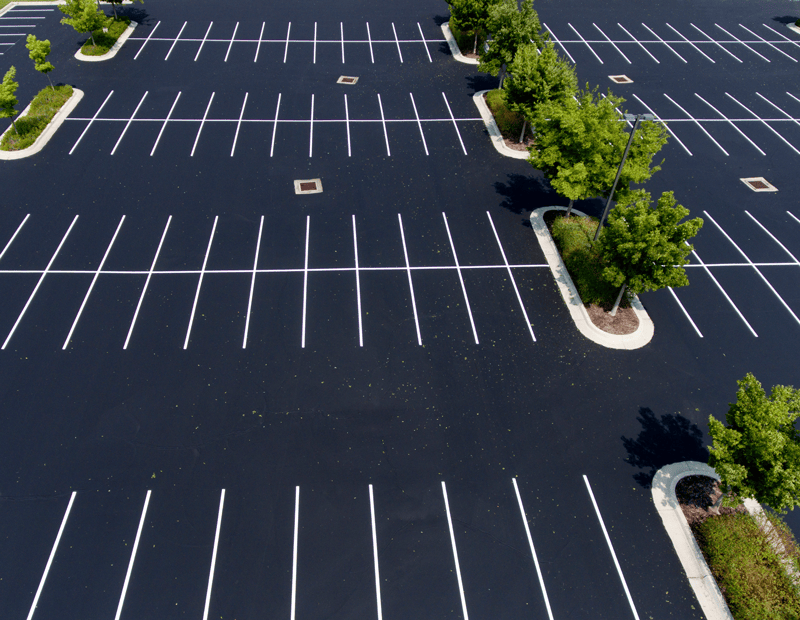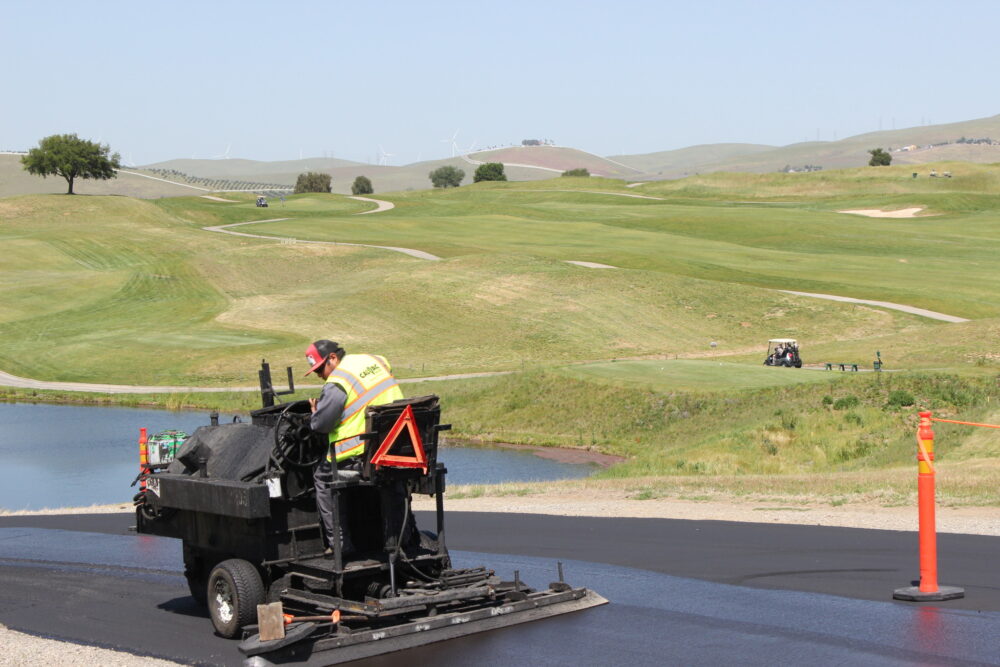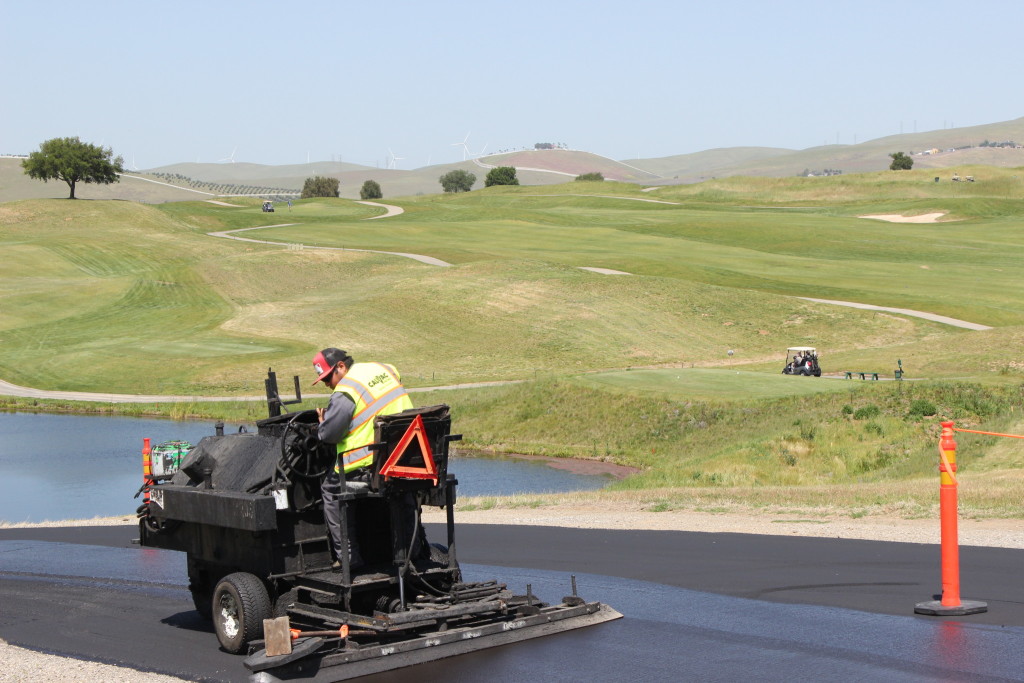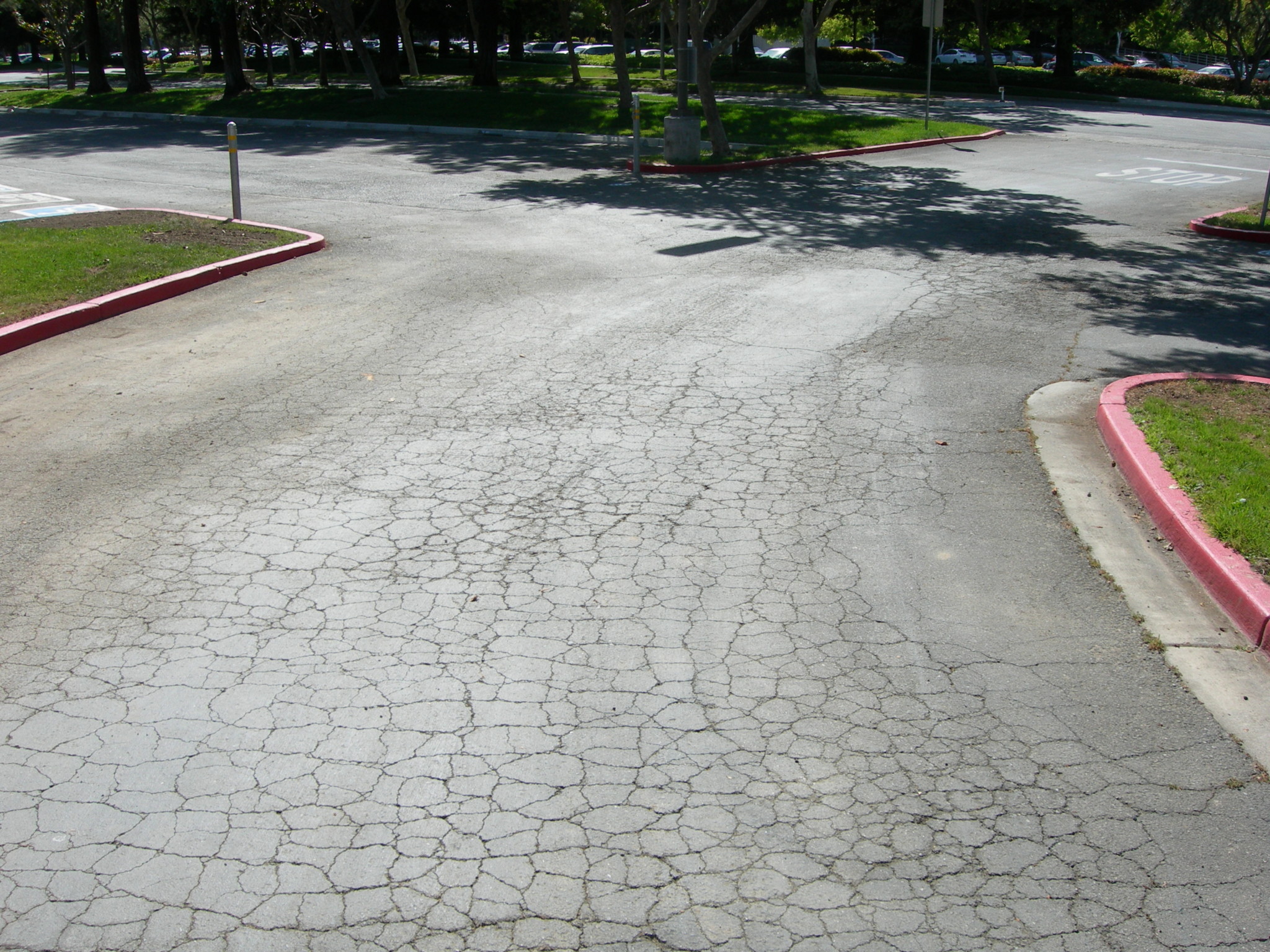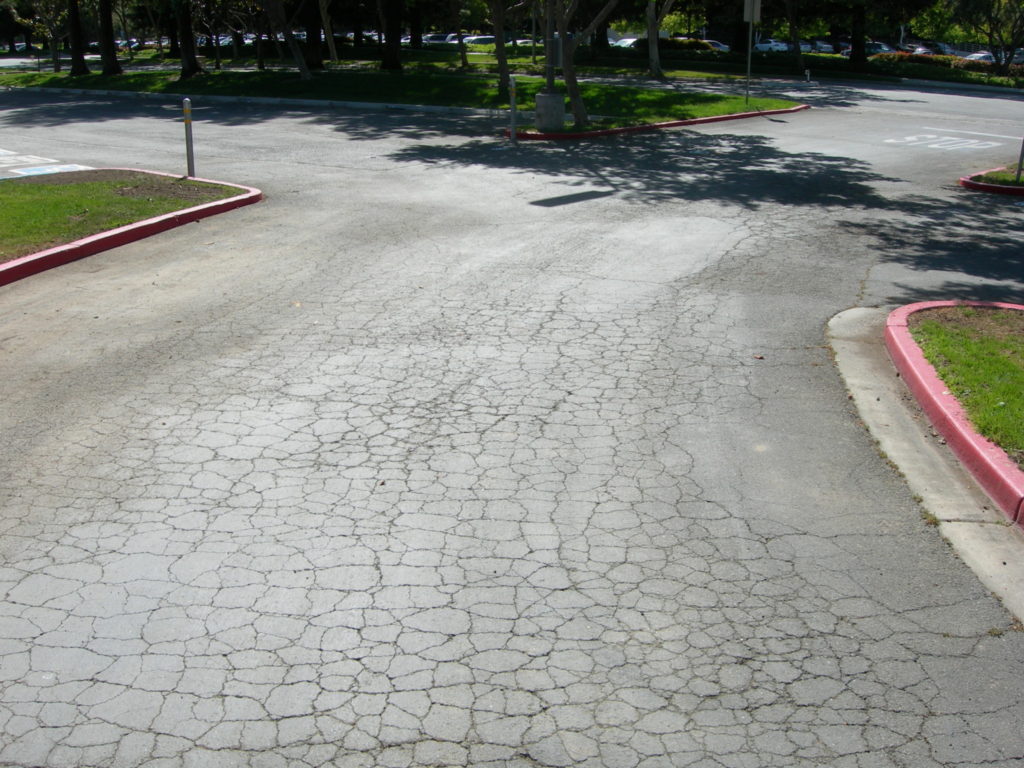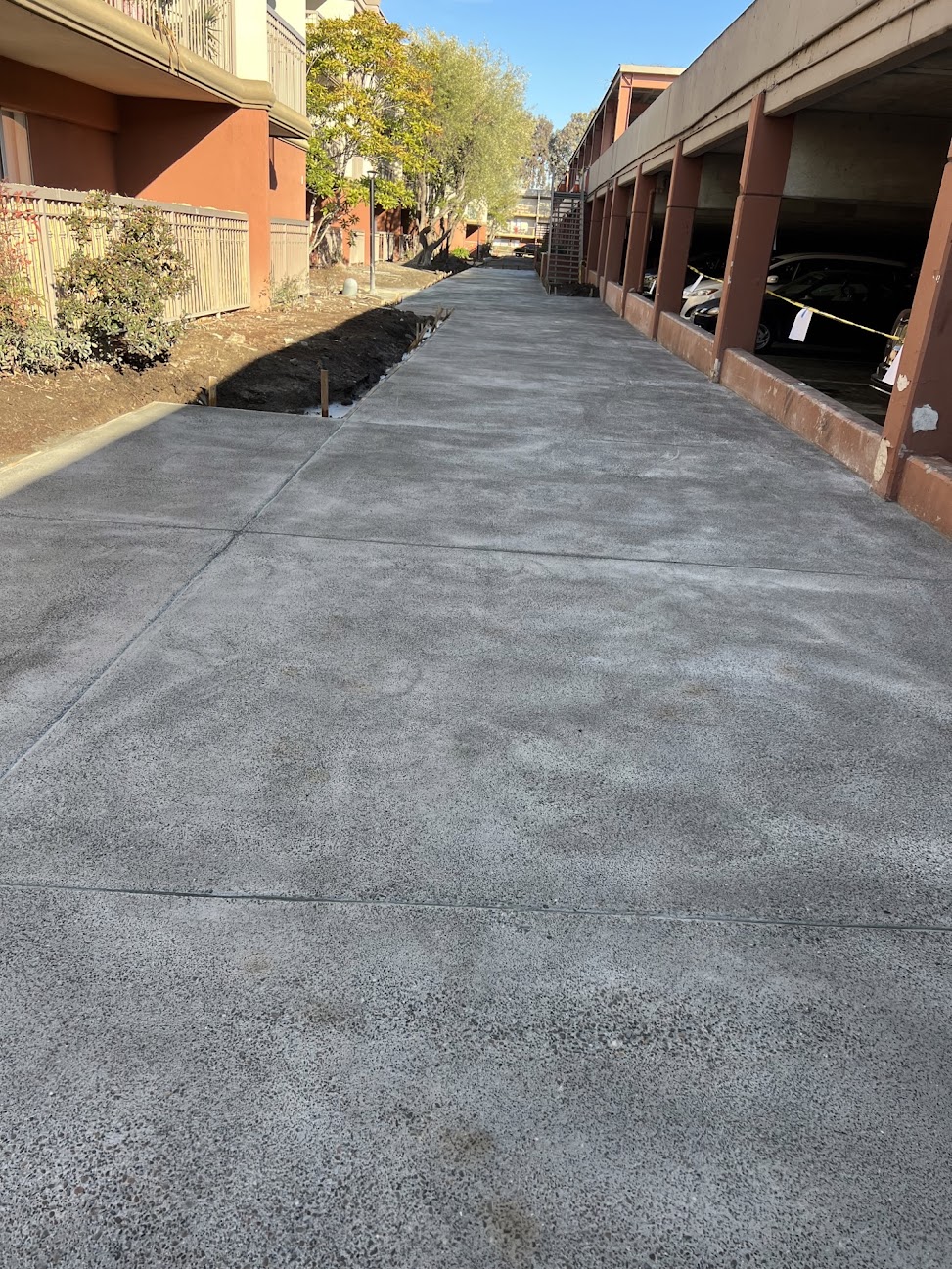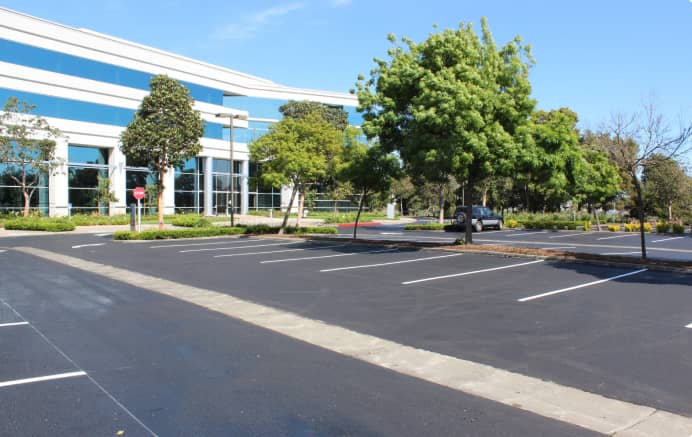Have you ever thought about the signals your paving might be sending? Most people don’t, but properly executed concrete and asphalt commercial paving can make a big difference in how your property is perceived, from the initial impression people receive just driving by to potential customers or even buyers.
If your property is used for regular commerce, such as a shopping center, big-box store, church, or apartment complex, you may find you don’t entice the sort of clients and visitors you’re hoping for if your asphalt surfaces aren’t up to par.
Even worse, it could adversely affect the bid numbers your property receives if you decide to sell!
If you’re noticing cracking, discoloration, warping, areas of exposed aggregate, faded striping paint, or other common signs and symptoms of asphalt and concrete failure, you might be tempted to just ignore it—or worse, try to figure out a fix for satisfactory asphalt repairs with the staff and materials available to you and your company.
But DIY asphalt repair isn’t always the best way to deal with problems like this. If they’re not dealt with by reputable asphalt paving company contractors, you could be left with an even bigger problem than you started with—and your customers, visitors, and potential buyers might be scared off by poorly placed asphalt paving or improper asphalt maintenance.
Calvac Paving is the asphalt company the Bay Area and Northern California trust for all your concrete and asphalt construction needs, delivered on schedule and on budget.
So if the points above haven’t convinced you that you really do need the help of professional asphalt paving companies to make sure your asphalt driveway, parking areas, and roadways are up to scratch, here are seven reasons why quality asphalt paving is a must for commercial property owners!
1. Enhances Curb Appeal
Commercial asphalt paving contractors can help improve the aesthetics of your property. Quality asphalt paving will enhance the curb appeal of your commercial property, making it look more professional and attractive to potential customers. Whether it’s a convenience store or a chain of community centers, even small cracks in your pavement can add up to high costs in lost revenues and interest for your business.
2. Boosts Property Value
Quality commercial asphalt paving is an investment that can increase the value of your commercial property. It can also make your property more appealing to potential buyers or tenants now and in the future.
3. Provides Safe and Smooth Surfaces
A quality commercial asphalt paving contractor will provide asphalt installation that delivers a smooth and level surface that is safe for pedestrians and vehicles and retains striping and marking paint at maximum visibility for a longer period too! A poorly paved surface can be dangerous, causing accidents and damage to vehicles. It’s also an ADA compliance infraction that could rack up big fines or even shut your business or property down if it’s not corrected.
4. Reduces Maintenance Costs
Quality asphalt paving can help reduce maintenance costs. A well-paved surface is less likely to develop cracks or potholes, reducing the need for frequent repairs.
5. Improves Drainage
Commercial asphalt paving contractors can design, build, and install a drainage system that prevents water from pooling on your property. This reduces the risk of damage to your pavement and prevents accidents caused by slippery surfaces. It also helps extend the life of your asphalt paving, keeping it looking and performing great for longer, reducing the future cost of maintaining and repairing your asphalt over time.
6. Enhances Sustainability
A quality commercial asphalt paving contractor will use sustainable materials and techniques to create long-lasting pavement. This reduces the environmental impact of construction on your property and the world around us and helps you meet sustainability goals. Going green, or at least greener means everyone wins!
7. Increases Customer Satisfaction
A well-paved parking lot or driveway can help improve customer satisfaction. It provides a positive first impression of your property, making customers feel more comfortable and safer while visiting your business while sending a clear, simple message: “We’re up to the job!” This is a crucial first step in the customer experience because if your facilities don’t look like they’re up to par, why would their expectations include the excellent, even exceptional, customer service and results you and your experienced staff strive so hard to provide?
Calvac Paving is the commercial paving and coating contractor you can trust to handle any size job.
Projects we handle range from simple residential paving and asphalt driveway paving jobs for homeowners’ associations and municipal authorities to pavement solutions for commercial applications like strip mall complexes or even a complete design/build of asphalt and concrete paving for industrial paving applications, complete with drydock and warehouse facilities. Our competitive rates will make your budget happy, while our commitment to environmentally friendlier practices can help everyone breathe a little easier.
Calvac Paving is proud to be the experienced concrete and asphalt paving contractor Northern California trusts, serving the Bay Area and beyond with the following suite of paving services, plus a lot more!
- Asphalt installation
- Asphalt maintenance
- Asphalt repair
- Asphalt sealcoating
- Concrete curb and gutter design
- Concrete curb and gutter installation
- Concrete curb and gutter repair
- Storm drain and runoff design and implementation
- Parking lot repairs
- Parking lot striping
- Parking lot sealcoating
- ADA compliance for signage, striping, and accessible parking spaces
- And much more!
For more information about how Calvac Paving can help with your upcoming construction or paving and maintenance job, or to request a competitive quote and bid information for upcoming paving projects, click here to contact us today through our website or check the location nearest you on our Contact page to reach us by phone.
Be sure to visit our Asphalt Service Page for some of the projects we’ve undertaken in the past too! And for more info about how proper paving and parking lot maintenance can ensure your asphalt parking lot, driveway, or roadway continues to perform the way you and your visitors need it to for years to come, keep reading for our answers to frequently asked questions about commercial asphalt paving contractors and why property managers and owners need them, from folks just like you!
Frequently Asked Questions About Why Quality Asphalt Paving is a Must for Commercial Property Owners
Calvac Paving is the asphalt paving contractor commercial businesses and government entities in Northern California trust for parking lot and driveway paving that lasts longer, as well as roadways that will stand the test of time!
Question: What Is A Commercial Asphalt Paving Contractor? –Reynaldo, San Jose, CA
Answer: A commercial asphalt paving contractor is a professional who specializes in the construction and maintenance of commercial properties such as parking lots, driveways, and roads using asphalt, as well as commercial paving and coating operations for other applications. But caveat emptor! Not all asphalt commercial paving companies are created equal. A commercial contractor who can handle a simple, minor repair job that only requires a touch-up on asphalt sealcoating to bring the surface back to life again may find themselves out of their depth on a job that requires a complete tear-out and reinstallation because the cracks have infiltrated through the entire asphalt mat, allowing in water, frost, and biological and environmental contaminants that can undermine asphalt’s flexibility and resilience. It’s important to always check the expertise of the company you’ve chosen for your commercial paving and coating needs, so you know you’ll get great, durable results that last far beyond the day the contracting company leaves the site!
Question: What Is The Typical Lifespan Of An Asphalt Surface? –Artie, Los Gatos, CA
Answer: The typical lifespan of an asphalt surface can vary depending on the quality of materials used, how well the ground preparation was executed before the final mat was introduced, the amount of traffic it receives, and the level of maintenance it receives. Generally, an asphalt surface can be expected to last between 15-20 years with proper care and maintenance.
Question: What Services Do Commercial Paving Contractors Offer? –Jeanette, Santa Clara, CA
Answer: In general, a reputable, established commercial paving company will typically offer a range of services, including new construction, repair, maintenance, and replacement of asphalt surfaces. Commercial contractors can also provide asphalt and concrete paving repair services, such as seal coating, striping, and crack filling, to extend the service life of your paving, so it looks and works better for longer.
Question: How Do I Choose A Reliable Commercial Asphalt Paving Contracting Company? –Chuck, San Francisco, CA
Answer: To choose a reliable commercial asphalt paving industry contractor, you should look for a company that has a good reputation, proper licensing, insurance, and experience in the field. You can also ask for references and check reviews from previous clients. If available, review the project gallery of previously completed projects to make sure the results they’ve delivered in the past are in line with your expectations for the future of your project. It’s even better if you can independently contact communities or municipal office personnel, such as a project manager, who has interacted with the company in the past and can give you an unvarnished review of your paving contractor’s services.
Question: What Factors Affect The Cost Of Commercial Asphalt Paving? –Thomas, Hobart, CA
Answer: The cost of commercial asphalt paving can be affected by various factors such as the size, scope, scale, and complexity of the paving project, the quality of materials used, the location, and the equipment and labor required for the job. For example, a job that only requires a pump truck with a single two-person paving team to dispense seal coat or crack sealer is going to cost a lot less money than one that requires a lowboy, pavers, a parade of asphalt delivery trucks, a front-end loader, and steel-drum and rubber-tire rollers, plus an experienced and seasoned roster of multiple paving crews to run and manage all this equipment. In general, residential driveways need a lot less equipment than most parking lots, and most parking lots (excluding schools and universities) typically require less equipment than roadway construction does, which obviously has a large impact on the pricing range you can expect for your job.
Question: How Long Does It Take To Complete A Commercial Asphalt Paving Project? –Ilsa, Sunnyvale, CA
Answer: The time it takes to finish a commercial asphalt paving project depends on the size, complexity, type, and requirements of the project. However, with proper planning and preparation, most projects can be completed anywhere from a day or so after starting to a few weeks, in the case of large industrial projects. This does not include the time to survey, plan, make sure the necessary crews, equipment, and materials are reserved, set up any necessary traffic controls, and similar “pre-work” logistics tasks that need to be done but often get overlooked when considering a deployment and execution schedule.
Question: I Manage The Development Of Townhouses, And I’m Considering Having My Maintenance Staff Work On Some Paving Problems I’ve Noticed. What Are The Benefits Of Hiring A Commercial Asphalt Paving Contractor? –Karen, Palo Alto, CA
Answer: While going the DIY route to stay within budget can be very tempting, it’s almost never the best way. What videos from YouTube or Instagram often don’t tell you are things like why this specific solution worked, or that one didn’t. They also don’t address hidden problems you might encounter trying to do the work yourself, such as water or frost infiltration into the mat, which can compromise its performance and presage more serious problems in the making, which may mean replacement rather than repair, is the right call. Hiring a commercial asphalt paving contractor at the outset can help ensure that your project is completed efficiently and to a high standard. They can also provide professional advice and guidance on the best solutions for your specific needs and situation. Obviously, there’s a lot more that goes into helping keep your paving looking and working great than just keeping it clean.
That’s why you need an experienced asphalt commercial paving company like Calvac Paving!
We take pride in delivering better results that go above and beyond for both you and your customers and tenants. To find out more about how Calvac Paving can help you bring your paving repair project in on time and on budget, click here to contact us today and see the difference a skilled, professional asphalt paving commercial contractor like Calvac Paving can make in your project outcomes for yourself!


